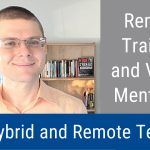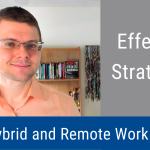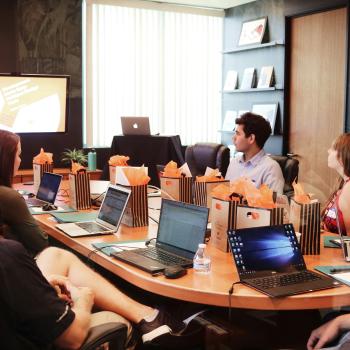
Humans are social beings and thus – the vast majority of us – require romantic relationships to be truly happy. If you have met that special someone and hope to start a long, happy, and fulfilling relationship with them, it is vital to understand the science of how to establish a long-lasting romantic relationship.
I have read extensively about this topic and have successfully applied my findings to my romantic and social life. As a result, my wife and I have been together for more than 18 years. My family and friends have also benefited greatly from what I have learned. I want to share these science-based tips with you to help you avoid dangerous mistakes and relationship disasters, and help your love life flourish!
If you enjoy video, here’s a videocast based on this blog:
And if you like audio, here’s a podcast based on the blog:
Or simply read onward!
I. Be Intentional
Be intentional and figure out the truth about your relationship. Think through all aspects of your budding relationship—your feelings and thoughts, the other person’s feelings, and the external context. Regardless of the type of relationship you are starting, whether conventional or unconventional, some things are near-universal.
Any relationship that is built without a strong foundation will eventually crumble. The best way to get it right, is to be honest about your expectations from the very beginning when you start dating.
If you notice yourself flinching away from a particular aspect of reality or a potential reality, this is the time to double down your focus and get at the truth. The things you flinch away from, the facts you don’t want to acknowledge to yourself, are likely to be the ones that will most undermine your relationship in the future.
It’s better to face the truth squarely in the face right now and address it rather than letting it sabotage your relationship in the long run. Unresolved issues have a way of coming back to haunt us. Do not let avoidable problems hurt what could be a lasting and fulfilling relationship.
II. Avoid Failing at Their Mind
One of the biggest dangers in close relationships is assuming the other person is the same as you in their feelings and thoughts, thus failing at their minds.
Often enough, our emotional self just doesn’t want to accept that the person we’re so close to is actually different from us—sometimes very different. I know I made this mistake, and it cost me dearly in the past.
Remember that as humans, we are all unique. No matter how many things they have in common, even the best of friends, the greatest of lovers, and most trusting of partners will have some things upon which they disagree. This is not necessarily bad since it makes us true individuals with distinctive personalities. The things you truly love about your partner are much more important than the few you don’t. Respect their choices, continue your efforts, and keep the big picture (i.e. your relationship) in mind.
III. Use Tell Culture
Remember when I mentioned being open with each other? Using Tell Culture is what I had in mind. Tell Culture is a communication strategy where you are open and honest with close people in your life about your feelings and thoughts about what’s going on with you, lowering your barriers, and being vulnerable and authentic.
It applies equally well to all the important relationships in your life, especially those with your romantic partner, as well as family and friends. Tell them things about yourself that you think they would want to know so that the bond of trust between you develops and grows stronger.
For example, if you want a hug, you should tell the other person that you would enjoy a hug. However, for Tell Culture to work, it’s vital for you not to expect that the other person has to hug you immediately.
You are responsible for telling them about your needs and desires, and they are then free to act as they choose based on their own needs and desires.
IV. Remove Communication Barriers
You need to remove communication barriers for open and honest communication to work. Anything that prevents all concerned parties from being open with each other is considered a communication barrier.
There is no better time to establish a strong understanding than at the very start of your relationship. Being open with the person you are dating ensures that you both have a clear idea of what you both expect from the relationship, be it small things like hobby preferences and lifestyle choices to bigger stuff like cohabitation, career goals, marriage, and having children. It is always beneficial to know these things early so that you and your partner can gauge the long-term viability of your relationship.
It is common that two people who are otherwise very well suited to each other may disagree on major points that may doom their relationship in the future. Figure out your individual communication preferences and then compromise on something that works well for both of you.
V. Practice Emotional Attunement
As you communicate with each other, try to understand the emotions underneath the words instead of just listening to what the other person is saying. Notice whether the other person seems stressed, frazzled, sad, frustrated, confused, pleased, glad, joyful, etc.
When you are in a new relationship and still learning about your partner, you may not get it right all the time – and they won’t, either. However, with time you will begin to understand each other better genuinely, and your relationship will be better off with patience and effort.
Pay attention to the tone of the voice, body language, what is not being said, and the content of the words. Such emotional attunement will level up your ability to understand the other person and respond in ways that lead to happy and long-lasting relationships.
VI. Trust Others
All of these strategies will help you build up trust, which research shows is key to having happy, lasting relationships. Since the dating stage is the beginning of your relationship, building a trusting relationship with your partner will prove highly beneficial for the future.
Always keep a personal evaluation of the level of trust in the relationship in the back of your mind. How much do you trust your partner to act in ways that both match your mental model of that person? How much do you trust that person to have your back?
If you want a lasting relationship, do things to build trust and gather information about the other person’s trustworthiness. Exhibit vulnerability and openness, share secrets, and be generous in your offers to compromise. If the other person shows themselves as trustworthy, then be more committed to the relationship. If they do not, re-evaluate your commitment level, as the relationship likely will not work in the long term.
VII. Respect Boundaries and Privacy
A key aspect of showing trust is allowing each other to set boundaries and permitting privacy. Technological developments make it so easy for us to track each other and constantly communicate.
As someone enters a new relationship, it is even more important to keep that in mind. Just because we can stay in constant touch does not mean it is healthy to do so. You are still getting used to each other and leading largely separate lives, and it is essential to give each other the space you need to ensure a sustainable and happy relationship.
Similarly, this is an excellent time to establish boundaries. Talk to each other and share your ideas about what you are comfortable with and not. It will save you from painful and potentially permanent disagreements in the future, and ensure that you both have an accurate idea of each other’s expectations.
Permitting each other to have space when needed, alongside avoiding pushing each other into doing things one would prefer not to do helps create long-term happiness in relationships. Respecting boundaries and permitting privacy will do wonders for building up mutual trust!
VIII. Have Healthy Conflicts
Surprisingly, conflicts can be healthy in relationships! If you go into a relationship expecting never to fight, you’ll lose out on great relationships because the first fight might well lead to the end of the relationship. Instead, learn strategies for healthy conflict resolution, and talk about them with your relationship partner before the fact.
As you are both people with your own views, ideas, and individual perceptions, there will inevitably be things about each other that will make you uncomfortable. As you initiate your relationship, both parties should commit to each other that you both will try your best to avoid making assumptions, and to always be upfront when facing doubts.
If you find something the other person does to be hurtful or wrong, try to have a civil conversation about it and tell them that you did not like what they did, and the reason why. Start any conflicts by highlighting how much you care about the other person and the relationship.
Talk about both the facts and how you feel about them. Avoid the blame game and instead, be as generous as you can be in interpreting the other person’s actions. Be open to changing your mind if you discover you made a mistake and apologize quickly and profusely.
Avoid focusing on the past and instead orient toward better behavior in the future. At the end of any conflict, focus on reconnecting and rebuilding emotional bonds strained by the conflict. My wife and I found these techniques to be so helpful in resolving tensions between us!
IX. Meet Your Own Goals
Remember that you are in the relationship to fulfill your own need for companionship. So keep your own goals in mind when engaged in any relationship. Starting a relationship is a beautiful thing, but do not let it consume your life to the effect that you forget yourself. Your ideas, career, goals, and direction in life are just as important as those of your partner.
Respecting their choices is the way to go, but you have the right to expect the same from them. When you enter a relationship, make these things clear to your partner so that you both have an accurate idea of what you are getting into.
Be intentional and consider what you want from the relationship as you evaluate it in your mind and heart. Don’t allow the other person’s needs and desires to overwhelm your own.
Play by the rules of Tell Culture and be honest and open with the other person in the relationship about your needs and desires. Encourage them to be the same way with you as well. Otherwise, you risk building up resentment and frustration both for yourself and your romantic partner, thus damaging the prospects of a happy, long-lasting relationship.
X. Compromise
When you begin dating, remember that your life and decisions now play a significant role in another person’s life and vice versa. Balance getting your needs met while meeting the other person’s needs as well. Seek a mutually beneficial compromise on any areas of disagreement because, as we all know, disagreements are inevitable. The trick is to remember which battles need to be fought and which ones do not. Understanding each other and respecting each other’s feelings is key to making successful compromises.
The ability to compromise is essential to forming happy and lasting relationships. Today’s society emphasizes individuality, but for any relationship to work, we need to get out of the self-centered shell and put ourselves in the other person’s shoes, understanding their perspective, thoughts, and feelings. That makes compromise much easier! My wife and I make compromises for each other all the time, big and small, and that’s how we keep our relationship strong.
Conclusion
As you start a romantic relationship, keeping a few things in mind can ensure that your relationship will be a lasting success. It is essential to be intentional, trusting, communicative, supportive and compromising in the various scenarios you will face together. Behaving respectfully with each other will go a long way towards ensuring that you and your partner have a very happy and fulfilling time with each other.
Key Takeaway
Relationships require work and maintenance, much like any other important facet of our lives. Open, respectful, and supportive attitudes towards one another from the very start will go a long way in helping you build a lasting relationship….>Click to tweet
Questions to Consider (please share your answers below)
- What mistakes did you make that have damaged a relationship in the dating phase?
- What do you think would be the most important things to discuss when entering a new relationship?
- What steps will you take for a successful romantic relationship based on this article?
Image credits: Andres Ayrton
Originally Published at Disaster Avoidance Experts on March 15, 2022.
Bio: Dr. Gleb Tsipursky is a world-renowned thought leader in future-proofing, decision making, and cognitive bias risk management in the future of work. He serves as the CEO of the boutique future-proofing consultancy Disaster Avoidance Experts, which specializes in helping forward-looking leaders avoid dangerous threats and missed opportunities. A best-selling author, he wrote Never Go With Your Gut: How Pioneering Leaders Make the Best Decisions and Avoid Business Disasters (Career Press, 2019), The Blindspots Between Us: How to Overcome Unconscious Cognitive Bias and Build Better Relationships (New Harbinger, 2020), and Returning to the Office and Leading Hybrid and Remote Teams: A Manual on Benchmarking to Best Practices for Competitive Advantage (Intentional Insights, 2021). His writing was translated into Chinese, Korean, German, Russian, Polish, French, and other languages. He was featured in over 550 articles and 450 interviews in prominent venues. These include Fortune, USA Today, Inc. Magazine, CBS News, Business Insider, Government Executive, The Chronicle of Philanthropy, Time, Fast Company, and elsewhere. His expertise comes from over 20 years of consulting, coaching, and speaking and training for mid-size and large organizations ranging from Aflac to Xerox. It also comes from over 15 years in academia as a behavioral scientist, including 7 as a professor at Ohio State University. You can contact him at Gleb[at]DisasterAvoidanceExperts[dot]com, LinkedIn, Twitter @gleb_tsipursky, Instagram @dr_gleb_tsipursky, Medium @dr_gleb_tsipursky, and gain free access to his “Assessment on Dangerous Judgment Errors in the Workplace” and his “Wise Decision Maker Course” with 8 video-based modules at https://disasteravoidanceexperts.com/subscribe/.














